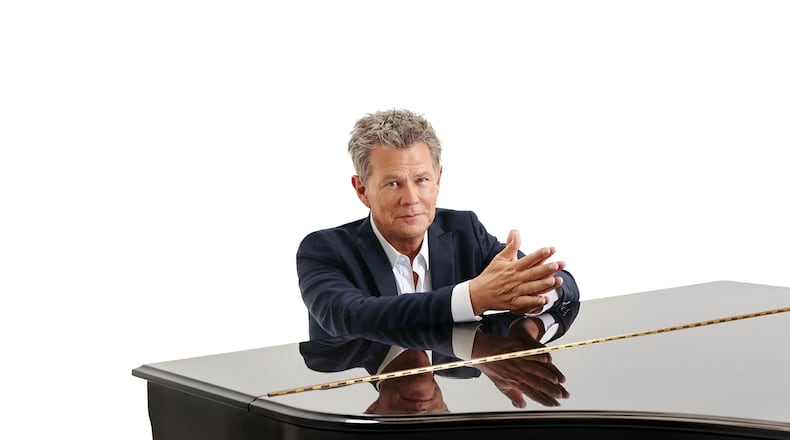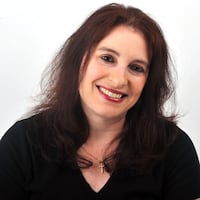The list of superlatives attached to David Foster’s name would require a dozen Wikipedia pages. The 16 Grammy Awards. The 2010 induction into the Songwriters Hall of Fame. The honorary doctorates and distinctions bestowed upon him in his native Canada.
And then, of course, the parade of artists with whom Foster has written, composed, produced and/or performed with in his 40-plus-years career: Barbra Streisand, Whitney Houston, Celine Dion, Kenny Rogers, Rod Stewart, Donna Summer, Madonna, Toni Braxton, Natalie Cole, Andrea Bocelli…we could keep going, but let’s pause for the reminder that Foster is also credited with discovering Josh Groban and Michael Buble and shepherding their careers.
The maestro, 69, is currently on a brief tour that wraps Sunday at Atlanta Symphony Hall and will reignite this summer in Canada.
Foster last visited Atlanta a decade ago with a few artists (Peter Cetera, Philip Bailey, Reuben Studdard) to sing his greatest hits. This time, he’ll be joined by another trio of voices – “American Idol” alum Pia Toscano, Stevie Wonder protégé Shelea Frazier and classical crossover vocalist Fernando Varela (an “America’s Got Talent” finalist with the group Forte Tenors).
The genial Foster, a true creative mind with a penchant for sumptuous melodies (Chaka Khan’s “Through the Fire,” Houston’s “I Have Nothing,” Cetera’s “Glory of Love” are smattering of his output) is also currently engaged to singer/actress Katharine McPhee (no wedding date yet, he said).
In a recent candid interview from Los Angeles, Foster focused on his newfound affection for live performances, what audiences will experience at his show, and why it’s impossible to determine what makes a good song.
Q: You don’t go on the road very often, so what prompted you to go back last year?
A: I have made music for so long within four walls, figuratively speaking. We didn't figure out until 15 years ago you could have a window in a studio! So you never know who you're reaching. The artists I work with got to take our music we created together out on tour and about 10-15 years ago, I (toured) little bit and I think that showed me how great it was (to share with an audience).
Q: Are you performing with the ASO?
A: No, I have a band. I tell stories. I love to go to the audience and get people to sing. It's always completely random. If it's planned, it never works out. Nine out of 10 times, I get something great. I think in the back of their minds (the audience singers are) thinking this is going to be the shortcut to success, but it's just a fun moment.
Q: Tell me about Pia and Shelea and Fernando and what they bring to the show.
A: They are three amazing singers; all three are on their own trajectory to their own stardom. All three are phenomenal singers. The songs are known - they've already been hits - so if you have great singers and an interesting story to tell, people don't mind that it's not (the original singers).
Q: You’ve played Asia a lot over the years and you’re a judge on “Asia’s Got Talent.” Why do you think there’s so much love for you there?
A: They love the people who make the music as much as the ones who sing it. They gave me my first boost of confidence that I could go and perform, sometimes with 'stars,' sometimes just me. I toured 10 countries in Asia multiple times. They know the words to every song. I first noticed it in Japan in the '80s, when I first started going over there. That fueled the fire for more shows.
Q: I know that audiences always love hearing the stories about how things unfolded – such as when you discovered Michael Buble or working with Streisand or Whitney – but do you like telling those stories?
A: I do enjoy telling them nightly because here's always a twist; someone from the audience who will say something to take you in a different direction. Some artists drop in (via) video. I can decide on any given night which artist I want to drop in to sing and play with us. It is different every night. You're talking to a guy who has done less than 100 (concert) dates in his life - that's a weekend for Buble! I'm excited about it. It's turning into more than a novelty as I get more interested in touring and less interested in making records. I stepped out of the studio for a few years because I just got bored with myself. The music business is awesome - it's more robust than ever, they finally figured out streaming - but I'm certainly not bored on stage.
Q: Does the stage give you an outlet that you genuinely enjoy or do you prefer the confines of a studio?
A: When you go see a group, unless you're a superfan of the group, you have to stick to songs you know. You might love Red Hot Chili Peppers, but maybe don't know all 100 of their songs. For my catalog, which is pretty vast, every single song was a hit, so that's probably entertaining for someone in the audience.
Q: You mentioned taking a step back from producing, but Michael Buble got you back in the studio to produce his current album (“Love”). He seems like a genuinely nice guy.
A: He's been through the unthinkable (Buble's young son was diagnosed with cancer in 2016) but come out the other side. To his credit, he's making the music he wants to make. We made five albums together, so it's just kind of obvious that we'd want to work together again. You get to see all of us on our best behavior, but after spending months and years with him, he really IS that nice of a guy. Celine is like that, too. She's very likely to say the wrong thing in a silly, endearing way, but she's amazing and really cares. She is the last person to say goodbye. She cares about everyone on the set.
Q: What do you think makes a good song? Are you a melody guy or a lyrics guy first?
A: I have no idea. If I knew I would have done it a thousand times. I've co-written a thousand songs, I just don't know the formula. Just when you think you've got it figured out, it stiffs, and if you think it's a stiff, it's a hit. When the 2000s came, my focus shifted to Groban and Buble and we weren't having Top 40 hits, but were having tremendous success selling CDs, so that carried me through until I stepped out of the studio. You can have three successful songs in a row and the fourth one you apply the same principles, but it fails.
Q: You turn 70 this year, and things seem to be going well in your personal life. Do you attribute that happiness to a continued creative desire?
A: I don't really see a link, other than I stay busy and that keeps me in the youth box. There's no getting around that some days you wake up and have a sore shoulder and don't know why. I live clean, I work out, I never done drugs, I don't drink and I haven't smoked in 40 years.
Q: What is the status of the musicals you’ve been working on?
A: I have four musicals in the works, actually. It sounds way more impressive than it is! They are in various stages of development. My catalog musical is coming to the forefront…and we're preparing for a workshop. It's strange that would be the one to leap into first place. And we're still working on "Lucky Us," the bestseller, to turn into a musical. It's a long, arduous process. The catalog musical seems to be moving along the quickest. We would try that out first, maybe La Jolla (Playhouse in California). There's a ton of places where you can develop things. But, you know, there's not many Lin-Manual Mirandas in the world. You have to have a great story. There are so many shows that have great stories and the music just has to be functional.
Q: You released your memoir a decade ago, but it sounds as if there is enough for a second volume.
A: I would and this is why. Did you read Andre Agassi's (memoir)? That book was so spectacular, like a novel. I had someone good to help me, but I was working away on the book and then I did the "Hitman" PBS special and all the powers that be wanted me to have the book out for the PBS special, so I spent three to four months on the book, and that isn't the way to do it. It's my own fault for not taking two or three years to do it and I only blame myself for that. I might get another run at it. At 6 a.m. one morning, I came up with 20 chapters, so that's a good start.
Follow the AJC Music Scene on Facebook and Twitter.
CONCERT PREVIEW
David Foster
8 p.m. Sunday. Sold out. Atlanta Symphony Hall, 1280 Peachtree St. NE, Atlanta. 1-800-745-3000, ticketmaster.com.
About the Author
Keep Reading
The Latest
Featured



